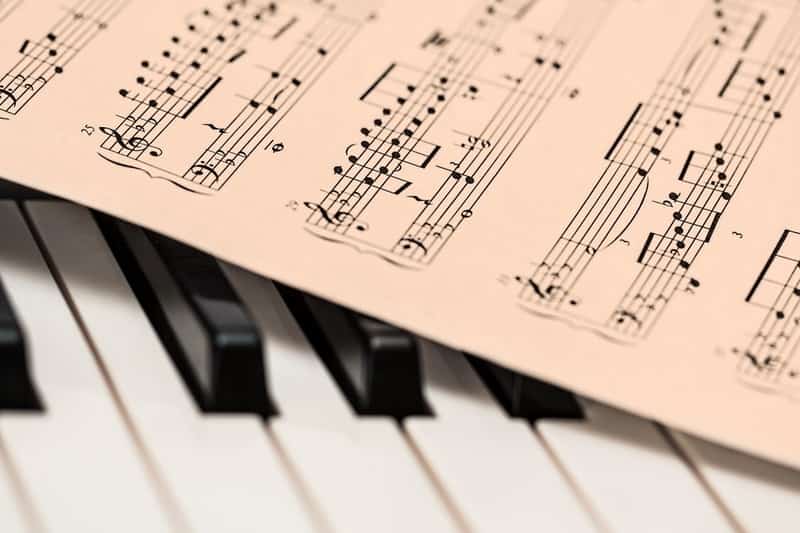Whether you’ve decided to learn the piano from scratch, or you’re a beginner just wanting to participate in a challenge, this 7 day piano practice challenge is light and fun for piano players of all levels and all types. Now, what can be most daunting is that when you look at the notes on a keyboard, or a piano – but in reality, there are just 12 notes, repeated over and over. So, if you do feel intimidated by 88 notes, you shouldn’t place your focus on this number – remember the 12.
There are many chords that you can learn, but many are also irrelevant to beginners and you won’t need to use them. If you’re thinking to yourself how many chords do I need to learn then the answer would be 12 major chords, and 12 minor chords. Learning on a keyboard can seem easier than a piano, but if you’re still in the process of finding the perfect piano for you, use this quick and easy piano finder, thanks to Coach House Pianos.
The 12:
- A, B, C, D, E, F, G – these notes are playing on the white keys of the piano
- Then we have an additional 5 notes played on the black keys (often referred to as the sharps)
Day 1 – Practice major chords and variations
The saying is true, practice makes perfect – especially if you’re a beginner.
Day 2 – Focus on chord substitutions
Chord substitutions are simple ways to mix up the chord progression when you play – by experimenting with these you have the freedom to play and mix with original songs to make the your own. Try Am, F, C, G and go into Am, F C, E.
Day 3 – Improvisation Tricks
Now that you’ve focused on chord substitutions and variations, you can easily improvise over progressions. The key element to this improvisation trick, is to use the notes C D E and G. You can spice things up with learning left hand patterns.
Day 4 – Ear Training
Ear training is important as it’s an effective way to improve your technique and it also helps with your improvisation techniques too. Listen to your favourite songs on piano, and try to replicate just by ear, without looking the notes up.
Day 5 – Time to Slice
Looking at a full song to practice can be extremely daunting and overwhelming, so what do you do? You slice it up, and break it down into smaller sections. When you’re learning the piano, your brain is actually running at full speed because it has to remember complex hand movements and notes. Studies have proven that 4-10 seconds is just the right length for your brain to properly focus on.
Day 6 – Accuracy is Your Best Friend
Beginner pianists often forget that playing at high speeds can have a significant impact on their accuracy. However, accuracy is a key starting point. Always focus on accuracy and not speed, as this is something you will slowly build to anyway.
Day 7 – Practice These 20 Arrangements
Like a bit of a challenge? Pick one arrangement out of the 20 in this list, or go for a few if you’d prefer, and practice, practice, practice. When learning the piano, it’s important to remember that it’s a long term skill, so it requires patience, discipline, and motivation. Many of us turn to music because it’s a stress reliever, it has a positive impact on our mental health and because we genuinely do enjoy it. Try the 7 day piano practice challenge and be sure to let us know how you get on!
Looking for a great deal? Check out these stunning pianos for sale—perfect for beginners and experienced players alike!
You may also like to read: Musical Instruments and Musical Taste Your Child May Like


